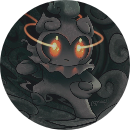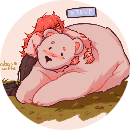He reads books in the libary (Anh ấy đọc sách trong thư viện)
Đúng 0
Bình luận (0)
Các câu hỏi tương tự
viết lại câu giống nghĩa:
1,This library contans over 300 books
= This library...........
2,This boy spend 3 hours a day learning English
=
3,We enjoy playing football
=we are..........
write the sentences in the correct order.
4. us/ the teacher/ books/ gives.
5. hardly ever/ that / squawks/ bird.
IV. Read the following passage and tick True or Fals: (2 Marks) London, the capital of Great Britain, is sitauted on the Thames River. It’s the largest city in Europe with population of over 8 million, it’s deviced in to four parts: The city West minster, the west Enland and the East End. The city is small in area but it is the commercial heart of london. Many books and offices are situated there. The Tower and ST. Paul’l Cathedral is very large and fine. It was buit in 1710.1. London is the c...
Đọc tiếp
IV. Read the following passage and tick True or Fals: (2 Marks)
London, the capital of Great Britain, is sitauted on the Thames River. It’s the largest city in Europe with population of over 8 million, it’s deviced in to four parts: The city West minster, the west Enland and the East End. The city is small in area but it is the commercial heart of london. Many books and offices are situated there. The Tower and ST. Paul’l Cathedral is very large and fine. It was buit in 1710.
1. London is the capital of Great Britain.
2. London is the largest city in the world.
3. The East End is one of the four parts of London
4. The Tower was buit in 1701
IV. Supply the correct Tense or Form of the Verbs in parentheses: (1 pt)
1.Last year, I had a chance (travel)________________ abroad.
2. He (not, see) _____________ his classmate for years.
3.If he (go)______________ to the countryside, he can enjoy the fresh air.
4. I am look forward to (hear)_________________ from you.
II. Fill in the blanks with WHO, WHICH or WHOSE:1. He arrived with a friend ______ waited outside in the car.2. The man ______ mobile was ringing did not know what to do.3. The car ______ the robbers escaped in was a BMW.4. The woman ______ daughter was crying tried to calm her down.5. The postman ______ works in the village is very old.6. The family ______ car was stolen last week is the Smiths.7. The cowboy ______ is wearing a red shirt looks very funny.8. A bus is a big car ______ carries lot...
Đọc tiếp
II. Fill in the blanks with WHO, WHICH or WHOSE:
1. He arrived with a friend ______ waited outside in the car.
2. The man ______ mobile was ringing did not know what to do.
3. The car ______ the robbers escaped in was a BMW.
4. The woman ______ daughter was crying tried to calm her down.
5. The postman ______ works in the village is very old.
6. The family ______ car was stolen last week is the Smiths.
7. The cowboy ______ is wearing a red shirt looks very funny.
8. A bus is a big car ______ carries lots of people.
9. The volunteers, ______ enthusiasm was obvious, finished the work quickly.
10. Children ______ like music are often good at mathematics.
Finish each of the following sentences in such a way that it means exactly the same as the sentence printed before it.Question 1: Tom didnt celebrate until he received the job offer in writing. Not until___________________________________________________.Question 2: The number of students applying to this university has increased by 10 %. There______________________________________________________.Question 3: They believe that the manager absconded with the companys pension fund money. The manag...
Đọc tiếp
Finish each of the following sentences in such a way that it means exactly the same as the sentence printed before it.
Question 1: Tom didn't celebrate until he received the job offer in writing.
=> Not until___________________________________________________.
Question 2: The number of students applying to this university has increased by 10 %.
=> There______________________________________________________.
Question 3: They believe that the manager absconded with the company's pension fund money.
=> The manager________________________________________________.
Question 4: You pay $ 20 a month for a period of one year.
=> You pay in__________________________________________________.
Question 5: It wasn't necessary for you to go to so much trouble on my behalf.
=> You needn't_________________________________________________.
sắp xếp các từ thành câu
1.milk/chicken/and/like/i
2.girl/the/there/in/is/garden/a
3.have/an/i/bananas/apple/and
4.is/sun/he/running/the/in
Read the following passage and mark the letter A, B, C, or D on your answer sheet to indicate the correct answer to each of the questions.Câu 6 - 10: The word jeans comes from a kind of material that was made in Europe. The material, called jeans, was named after sailors from Genoa in Italy, because they wore clothes made from it. In the 18th century, jean cloth was made completely from cotton and workers at that time loved wearing it because the material was very strong and it...
Đọc tiếp
Read the following passage and mark the letter A, B, C, or D on your answer sheet to indicate the correct answer to each of the questions.
Câu 6 - 10:
The word jeans comes from a kind of material that was made in Europe. The material, called jeans, was named after sailors from Genoa in Italy, because they wore clothes made from it.
In the 18th century, jean cloth was made completely from cotton and workers at that time loved wearing it because the material was very strong and it did not wear out easily.
In the 1960s, many university and college students wore jeans. Designers made different style of jeans to match the 1960s’ fashions: embroidered jeans, painted jeans and so on.
In the 1970s more and more people started wearing jeans because they became cheaper.
In the 1980s jeans finally became high fashion clothing, when famous designers started making their own styles of jeans, with their own labels on them. Sales of jeans went up and up. But in the 1990s the worldwide economics situation got worse; and the sale of jeans stopped growing. However, jeans have never been out of fashion, and today young generation is still fond of wearing jeans.
(Câu 6) In 18th Century:
A. Workers liked to wear jeans because it was strong & could hardly wear out.
B. There was any jeans.
C. Jean cloth was made completely from cotton
D. Both A and C.
(Câu 7) In 1970s, Jean became cheaper, because:
A. It was made completely from cotton. B. The students liked wearing jeans.
C. More and more people started wearing jeans. D. Both A and B.
(Câu 8) In 1980s:
A. Jeans had no customers. B. Jeans became high fashion clothing.
C. Jean became more expensive. D. The sale of jeans stopped growing
(Câu 9) Where does the word jeans come from?
A. The name jeans comes from a kind of material made in Italy.
B. The name jeans comes from a kind of material made in France.
C. The name jeans comes from a kind of material made in English.
D. The name jeans comes from a kind of material made in Europe.
(Câu 10) Why did the sale of jeans stop growing?
A. It was replaced by a new material.
B. Because the worldwide economic situation got worse.
C. The people didn't like to wear jeans.
D. Both A and C.
IV. Read the passage, and choose the best answer.Good manners are a treasure to the people who possess them, as well as to the community they live in. Manners are taught, learnt, and passed from generation to generation.Even hundreds of years ago, children were taught to behave responsibly. They learnt to respect seniority. When they passed an object to another person, they had to use both hands. When they entered a room, they had to bow and greet the oldest person first. Boys learnt to work har...
Đọc tiếp
IV. Read the passage, and choose the best answer.
Good manners are a treasure to the people who possess them, as well as to the community they live in. Manners are taught, learnt, and passed from generation to generation.
Even hundreds of years ago, children were taught to behave responsibly. They learnt to respect seniority. When they passed an object to another person, they had to use both hands. When they entered a room, they had to bow and greet the oldest person first. Boys learnt to work hard to support their families. Girls learnt to do housework, and to take care of others. Loyalty and honesty were highly appreciated. When they made a mistake, they would not let another person be punished for it. That would be cowardly and mean. They were taught that families were strong, and everybody should stick together in adversity.(tai họa, nghịch cảnh)
Fortunately, many of these values have been well preserved. They have contributed to making the unique Vietnamese culture, and strengthening our society.
23. Good manners are _______________________.
A. of great value
B. of the community
C. traditional
D. only for the old
24. What was a boy’s main duty?
A. to respect seniority
B. to support his family
C. to do housework
D. to share good things
25. The sentence: “When they made a mistake, they would not let another person be punished for it,” means they would _______________________.
A. deny their mistake
B. admit their mistake
C. keep it a secret
D. be punished
26. What contributed to making the unique Vietnamese culture?
A. tradition
B. generations
C. good manners
D. seniority
27. This passage is about_______________________.
A. people who possess good manners
B. what bad manners children in the past had
C. the preservation of bad values
D. good manners and their value

















